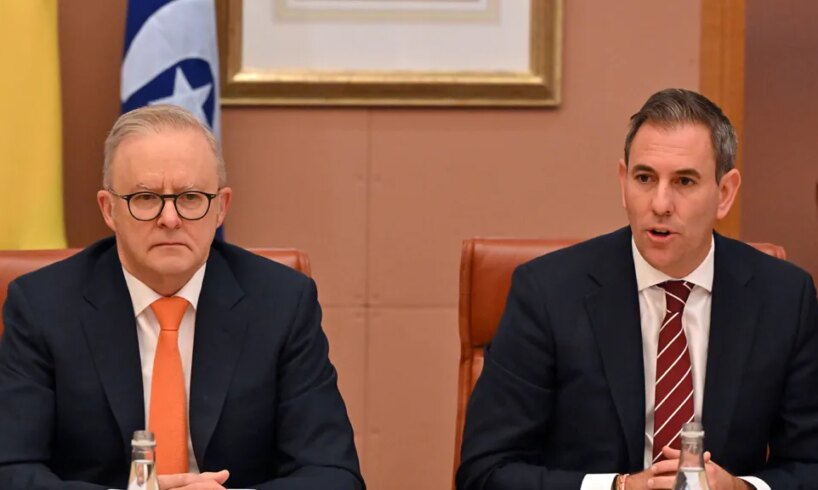
It’s not that the government’s to-do list coming out of the productivity roundtable doesn’t have merit — it’s that it has spent a lot of money on bringing highly-paid people to Canberra to produce an agenda that doesn’t have anything new on it.
It’s almost as if someone from Jim Chalmers’ office asked every cabinet minister if they had any productivity ideas they were already working on that could be put on the treasurer’s list of 10 reform areas. Reducing National Construction Code complexity. The Environment Protection and Biodiversity Conservation Act reform halted by hostility from the rotten WA petrostate. Writing to regulators for ideas to reduce red tape. “Tell us once” functionality so citizens no longer have to repeat the same information to multiple agencies. The national AI capability plan. A road user charge for electric vehicles (though taxpayer subsidies for wildly oversized fossil fuel guzzling utes will continue).
Related Article Block Placeholder
Article ID: 1218439
All good stuff, even if they won’t amount to a big bang of reform, yet all things that were happening anyway or already on the agenda. In effect, the government spent three days securing political cover for projects it had already embarked on. Only the vague commitment to do something about the intergenerational equity of the tax system and incentivising business investment — along with how to make higher levels of spending more sustainable — hints at ambition, and that’s heavily caveated with a commitment to it being done in “a consultative way, collaborative way”.
It’s a little too soon to start calling this the Albanese era — maybe if Labor secures power into the 2030s — but if it ever becomes that, it will be in stark contrast to the Hawke-Keating era. That’s not to engage in more dewy-eyed nostalgia for the 1980s, but to reflect on Albanese’s quite different focus: restoring and maintaining trust in government in an era when the self-interested pursuit of neoliberalism has heavily eroded it.
Hawke and Keating could deliver a dramatic reform agenda because levels of trust in government were much higher in an age of economic insularity, one when the media space was far more unified, controllable and populated with editors and journalists with some commitment to the national interest. It was also possible because in Hawke we had a remarkably gifted politician whose connection with voters — whatever Keating’s jibes about tripping over TV cables in shopping centres — was authentic.
Independent. Irreverent. In your inbox
Get the headlines they don’t want you to read. Sign up to Crikey’s free newsletters for fearless reporting, sharp analysis, and a touch of chaos
By continuing, you agree to our Terms & Conditions and Privacy Policy.
Related Article Block Placeholder
Article ID: 1217504
In Albanese, we have the Ford to Hawke’s Lincoln, a prime minister who sees himself as having to first and foremost build and keep trust in government. We can whinge about the lack of ambition, the snail-like pace of reform, the timidity, or even complicity, in the face of vested interests — the latter certainly applies to Labor and our fossil fuel addiction (the climate catastrophe barely scored a mention yesterday) — but that’s the nature of what may come to be the Albanese era.
History might judge him slightly more favourably than we will. After all, we forget it was the headlong embrace of economic reform in the 1980s and early 1990s that prompted the first reactionary backlash from regional blue-collar workers via One Nation (and the feeling that John Howard tried to tap into with his “comfortable and relaxed” pitch in 1996). A longer-term view might assess that Albanese’s strategy of maintaining trust ahead of seizing the economic benefits of rapid reform has greater net benefits in terms of backlashes never fostered, populist spivs never elected, neofascists never elevated to prominence.
For now, the question is less about how much to whine about the lack of reform than whether Albanese and his government are getting the balance right between Trust at one end and Go For Broke Reform at the other. On the prime minister’s own terms, the question should be how much can be achieved while maintaining and enhancing voter trust. But after this week, it’s hard to avoid the sense that in this government the balance always tilts toward timidity.





